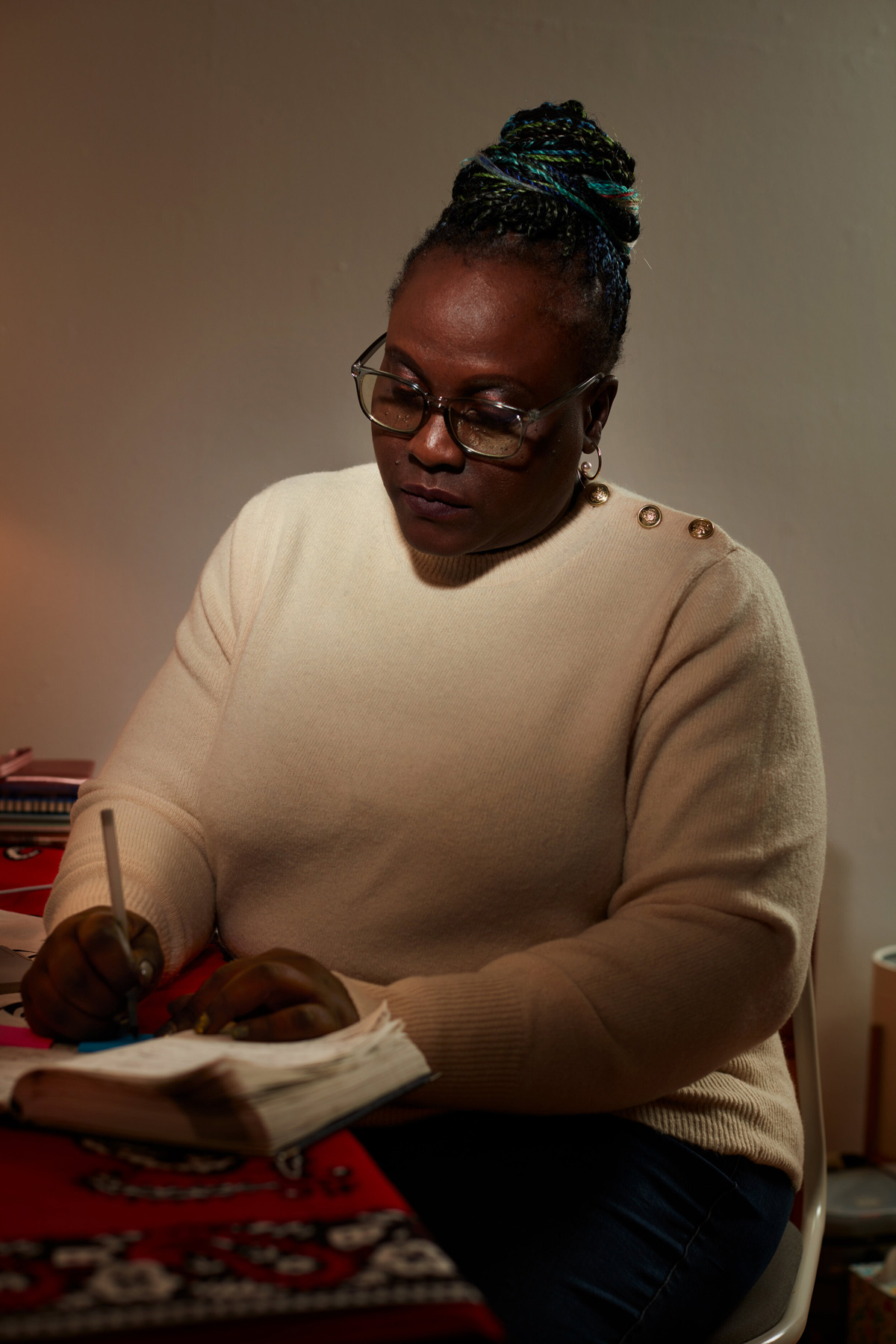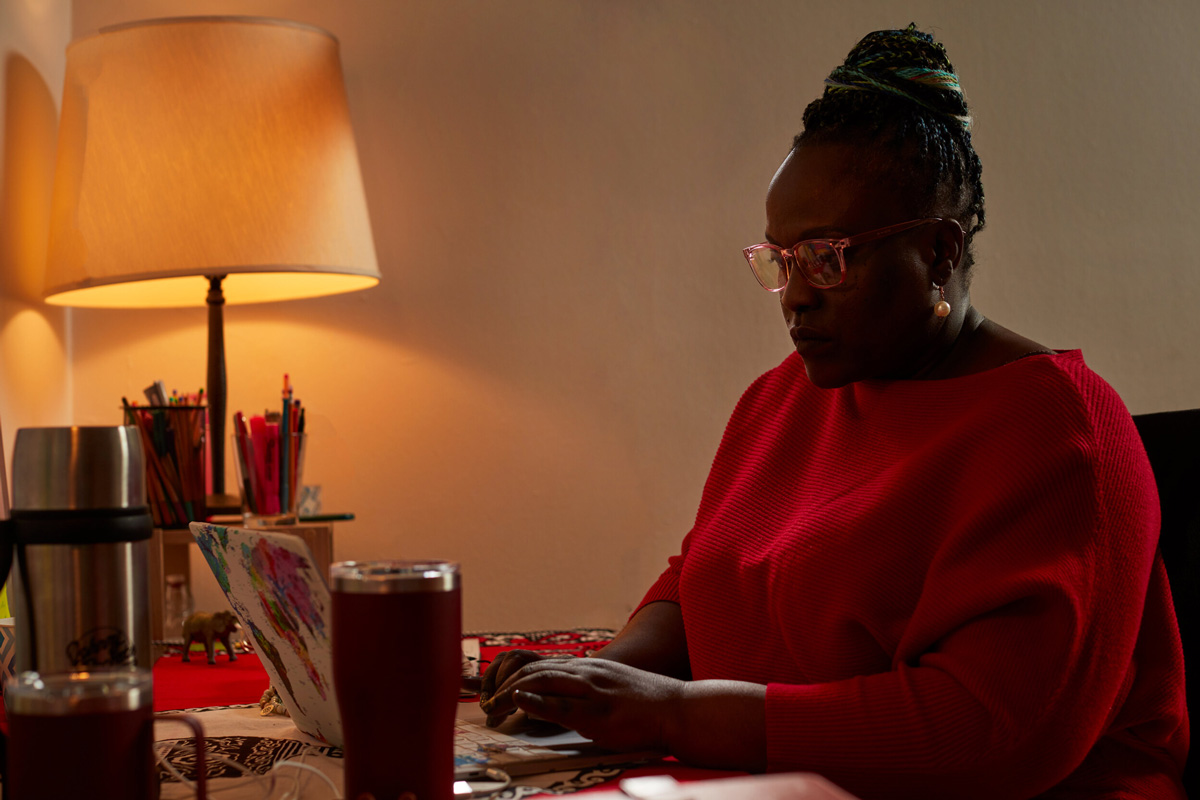In June 2022, Achiro P. Olwoch witnessed — what was to her — a miracle. Her play, The Survival, opened at New York City's Lincoln Center as part of the Criminal Queerness Festival. The production was the realization of a dream that Olwoch fought for and suffered bodily injury to fulfill.
“When I say it took blood, sweat, and tears, it’s literal,” she said. In late 2017, while still living in Kampala, Uganda, Olwoch was assaulted while walking home from the local theatre where she had been working on the play. She said the beating was a result of not heeding warnings to “stop promoting homosexuality” with her play and works.
“Prior to the attack, I kept getting [text messages] and emails telling me to stop, saying they were watching me. [I received] anonymous emails regarding my play because it had an LGBTQ theme. And then I got attacked on the street in the middle of the night,” said Olwoch. “I was on my way home. I did see my attackers, and they didn’t steal anything. Their main aim was to harm me.”
The Survival is about a woman who becomes pregnant and discovers the father of her child is gay. This was a controversial, even dangerous theme to explore because the East African nation has a long history of anti-gay policies. In 2009, the Ugandan government introduced the "Anti-Homosexuality Bill" to prohibit same-sex relationships. The legislation stalled then but resurfaced in 2014 and then again in May of this year, when it was signed into law.
“In the play, it leads to almost a race for survival by everybody who knows the two of them because of the law in Uganda,” explained Olwoch, about the story set in her home country.
In real life, Olwoch suffered lasting injury from the assault. “All of 2018, I was horizontal. I couldn’t move. I couldn’t walk. I couldn’t sit or stand because I developed sciatica,” she explained. In 2020, Olwoch was back to work, making a film with an LBGTQ+ theme, which attracted media attention. That’s when she received more warnings. She kept going. “The name Achiro means ‘the resilient one,’” she said.
“During the COVID lockdown, I guess different factions started taking advantage of different things,” said Olwoch. “So artists were especially well targeted, and I was one of the artists targeted, but also because I am a lesbian.”
Despite the aggression and the threats that she continued to receive via calls and texts, Olwoch remained in Uganda until 2021. She said that as soon as the U.S. lifted COVID-19 travel restrictions, she came to Brooklyn, New York.
“I had a valid visa to the U.S., and I knew that in the U.S. I would be safe. I did not come initially to seek asylum, I came to clear my head with the intention of going back home after a while,” said Olwoch.
In mid-2022, she joined the Scholars at Risk program, a nonprofit that protects scholars under threat by arranging temporary research and teaching positions at institutions that have opted into its network. And that led her to Barnard. This semester, Olwoch is co-teaching the Performing Women course with senior lecturer Shayoni Mitra.
“I love that the students are open to learning, and they are interested in what I have to say,” said Olwoch. On October 28, she gave a playwriting workshop on campus. This year, the Department of Theatre has planned several events with Olwoch, including a reading of The Survival and a panel discussion on artistic responses to queer persecution globally.
Olwoch says she is grateful for her time at Barnard and for her new life in the U.S. But it’s difficult to be away from her homeland, especially since her own immigration is not yet resolved. “My papers are filed, but they haven’t yet been approved, so that literally means I don’t necessarily belong anywhere. I don’t even know how to describe it, but it almost feels like you’re dangling,” she said.
Last year’s production of The Survival resonated deeply with Olwoch, as do plans for an upcoming staging of the play at the Perelman Performing Arts Center next June. “I was in tears seeing this on stage last year — seeing two men holding hands, and at some point in the play, they kiss. All that would never have happened in Uganda. They would have arrested them and the whole audience. So it was just almost surreal,” she said. “Until I actually saw it on stage, I still didn’t believe it.”

